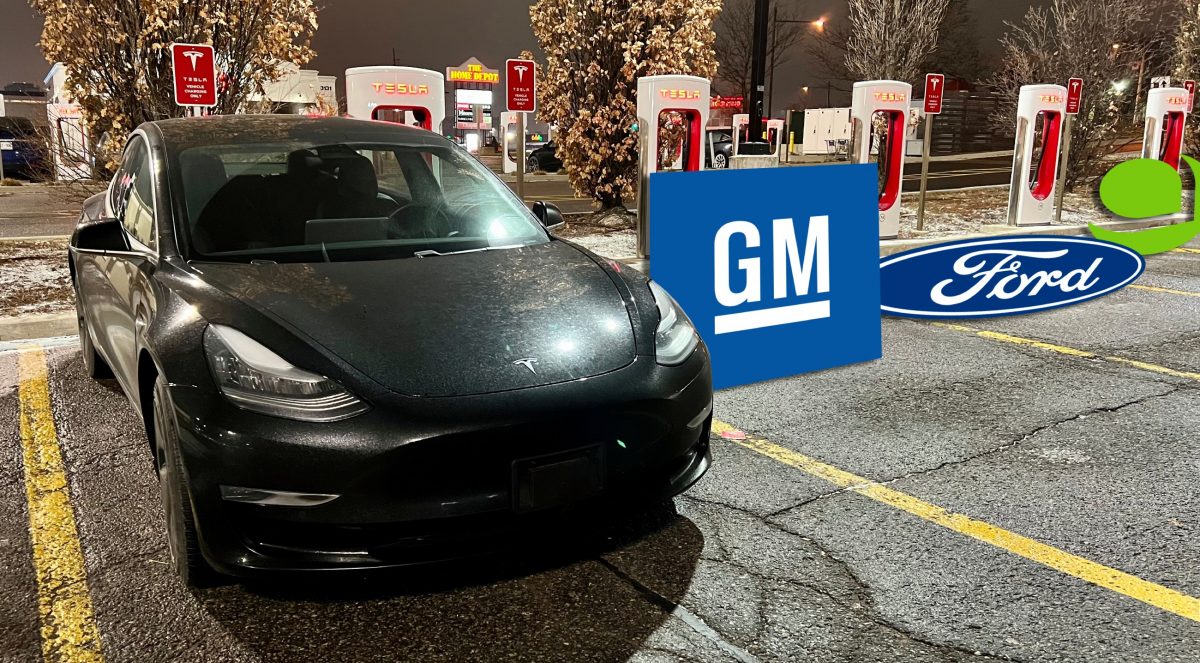Like dominoes, supporters of the CCS fast-charging connector in North America have started to fall. It is now almost inevitable that NACS (Tesla plugs) will become the de facto standard for charging EVs.
At the start of 2023, it could still have been anyone’s guess. Tesla enjoyed a massive head start with 2/3 of the EV fleet in North America and a vast and reliable Supercharger network. CCS, on the other hand, was growing market share as more EV models from more brands were hitting the streets. Not to mention that the rest of the world had also adopted some version of CCS connectors.
First Signs Emerge
Aptera Motors, a small automotive startup was the first OEM to announce the adoption of Tesla’s NACS standard back in November of 2022. Aptera is a niche solar EV company, so the announcement went largely unnoticed in the automotive industry. But then Ford Motor Company stunned everybody in May 2023 by becoming the first large manufacturer to make the jump from CCS to NACS. The justification from Ford was Tesla’s impressive network of 12,000 fast charging stalls across the continent. Starting in 2025, new Fords will come from the factory with the NACS plugs as standard. While existing Ford EV owners will be getting an adapter. (It is not yet known if the adapter will be provided for free)
GM’s big move
On June 8, 2023, General Motors CEO Mary Barra announced that GM too will be transitioning to NACS connectors in 2025, and will have CCS/NACS adapters for existing EV customers in 2024.
What’s next?
So now we have the largest manufacturer of electric cars (Tesla) and the first and second largest American car companies backing NACS for charging in North America. At this point, it is only a matter of time before the remaining car makers make their own announcements. CCS is now poised to follow the route of CHAdeMO connectors and become completely phased out of infrastructure post-2025.
Our take on this development
Consumers will greatly benefit from this in the longer term. Having two competing standards benefits no one, and only causes frustration during the transition to electric transportation.
We would have been happy if either one of CCS or NACS had won, as long as a clear winner had emerged. However, we are slightly more pleased with NACS winning because it is a much more elegant solution that requires much smaller opening and charging ports. It’s a versatile connector and much easier for regular users to handle than those jumbo CCS connectors.
It will be a minor inconvenience for buyers of CCS-equipped cars going forward, but those users will also gain access to a very large and reliable DC fast-charging network.
March 2024 Update
We’ve had time to digest this seismic shift in the North American EV charging landscape. By now, all major automakers have committed to the NACS connector for EV build in 2025. The Supercharger network took a huge step at the end of February 2024 to open access to Ford’s EVs, with other brands to follow very soon. And finally, we are seeing more options for NACS connectors on home charging station products. ChargePoint now offers their Home Flex product with a choice of J1772 or NACS connectors.
Excited for what this partnership means for our customers and the industry. https://t.co/3qlkVvW7kR
— Mary Barra (@mtbarra) June 8, 2023
Related
- What’s The Difference Between J1772 And CCS Charging Adapters For Tesla?
- Best CCS Adapters For Tesla – How To Charge Teslas On CCS In North America

